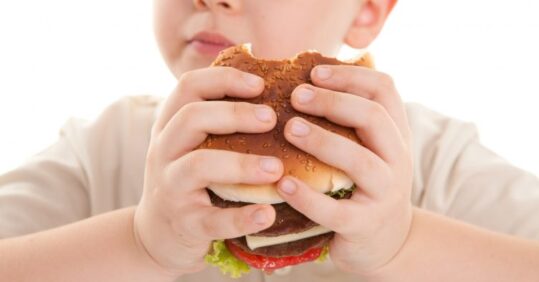Government action on childhood obesity ‘slow’, watchdog warns

Government efforts to reduce childhood obesity need ‘greater urgency’, with rates in the UK among the worse in Western Europe, a report from the spending watchdog has warned today.
The National Audit Office (NAO) cast doubts over the Government’s current plan, announced in 2016, to tackle childhood obesity after ‘limited success’ addressing the escalating issue since the 2000s.
It said progress under this Government has been ‘slow’ and ‘many commitments are not yet in place’, as the latest figures show that a fifth (20.2%) of 10- to 11-year-olds are obese.
The report continued: ‘The Government will need to act with greater urgency, commitment, co-ordination and cohesion if it is to address this severe risk to health and value for money.’
Related Article: Food insecurity and obesity: a North-South divide
In July, the prime minister pledged further measures, such as a ban on advertising ‘unhealthy’ foods before 9pm, amid growing evidence between obesity and severe Covid-19 cases.
However, the NAO highlighted that Boris Johnson had not announced that the ban on energy drink sales to children would go ahead, although the department committed to it in July 2019.
And despite some progress in reducing sugar levels in popular foods, the Government will not meet its ambition to have industry reduce sugar by 20% in certain products by 2020, it said.
It warned that obesity is ‘increasing’ among pupils in their final year of primary school – those aged 10 and 11 – and rising ‘even faster’ among children in deprived areas.
In 10- to 11-year-olds, children from deprived areas are twice as likely to be obese – with 26.9% classed as obese in the most deprived compared to 13% in the least deprived.
More than 15% of black children, and just over 9% of white children, are classified as obese at four to five years old. This gap widens to more than nearly 29% and 18%, respectively, by ages 10 to 11.
Related Article: Be alert to pancreatitis in patients using GLP-1 weight-loss drugs
In 2016 the Government published the first chapter of its new childhood obesity plan, with the aim to significantly reduce England’s rate of childhood obesity in the next ten years.
The second chapter of the plan, published in 2018, aimed to halve childhood obesity and reduce the gap in obesity between children from the most and least deprived areas by 2030.
NAO head Gareth Davies said that tackling childhood obesity is a ‘major challenge, and one that governments have struggled with since the 2000s’.
He continued: ‘It is clear that children living in deprived areas or from ethnic minorities are far more likely to be obese and the problem is worsening.’
Royal College of Nursing executive director of policy and public affairs Susan Masters said that nursing staff ‘see the impact of obesity every day’ and ‘targeted action is needed’.
Related Article: Lower gastrointestinal symptoms – supporting earlier diagnosis
She continued: ‘We need action to reduce levels of obesity and protect the long-term prospects of those most at risk.
‘This requires investment into health and care services which support healthier lifestyles, and a commitment to redress the balance for these services which have seen their funding cut.’

See how our symptom tool can help you make better sense of patient presentations
Click here to search a symptom




